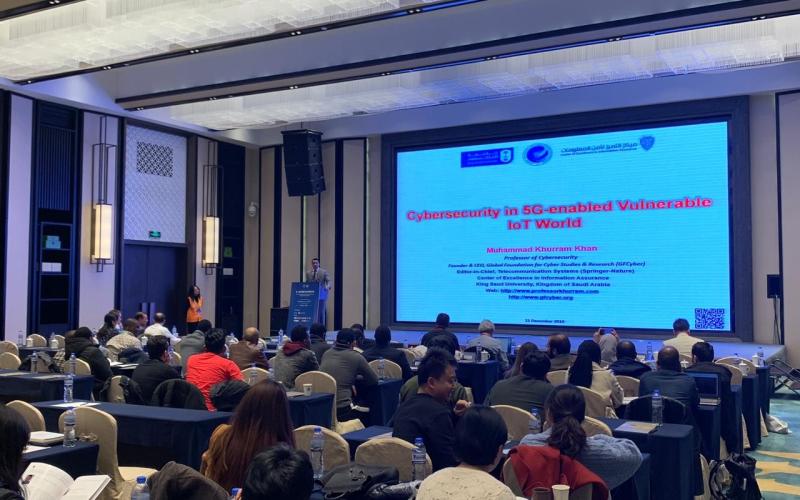CoEIA and KSU Shine at International Conference on Big Data and Security
The International Conference on Big Data and Security (ICBDS 2019) took place from 20-22 December 2019 in wet and cold weather of Nanjing, the capital city of Jiangsu province of China. The conference was sponsored and supported by Nanjing Institute of Technology (China), University of Oulu (Finland), Curtin University (Australia), University of Central Arkansas (USA), Kyunghee University (Korea), NUAA (China), Jiangsu Association of Artificial Intelligence (China), Jiangsu Computer Society (China), and several other local and foreign companies. The conference brought together experts, academics, professionals and researchers from all over the world to discuss the current status, research challenges, and potential ways to address security and privacy of Big Data and systems as well as AI, machine and deep learning (MI/DL), blockchain, and 5G etc.
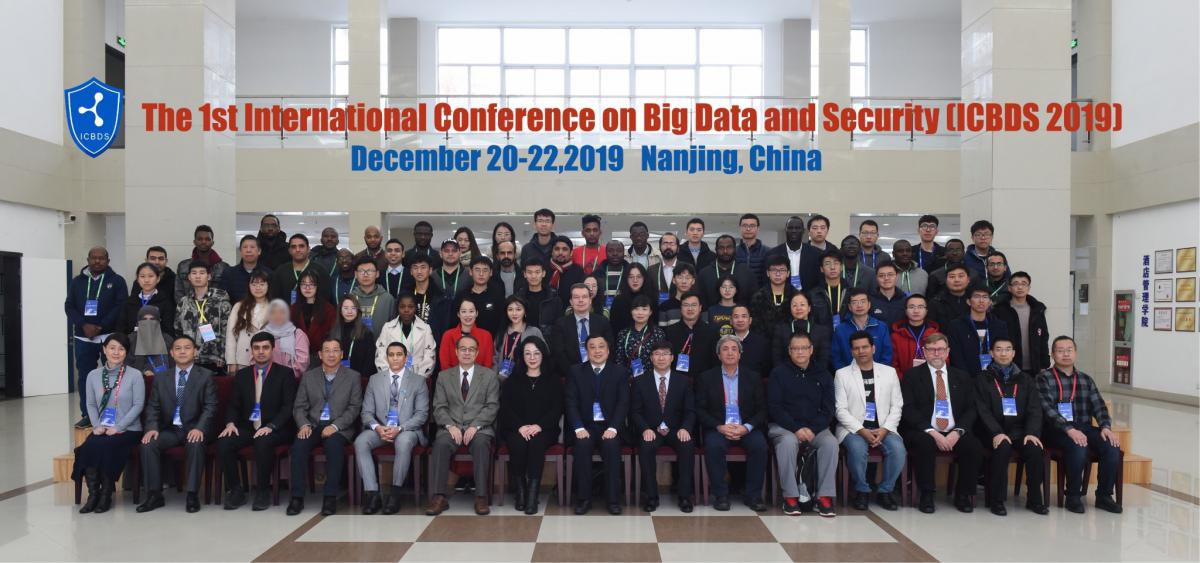
The opening ceremony of the event was presided over by the honorary chair and president of Nanjing Institute of Technology China who welcomed the local and foreign guests to the conference and underscored the importance of the subject of cybersecurity and big data in the modern digital world. The ceremony was attended by a large number of dignitaries, including officials, media outlets, academics, professionals, and researchers etc.

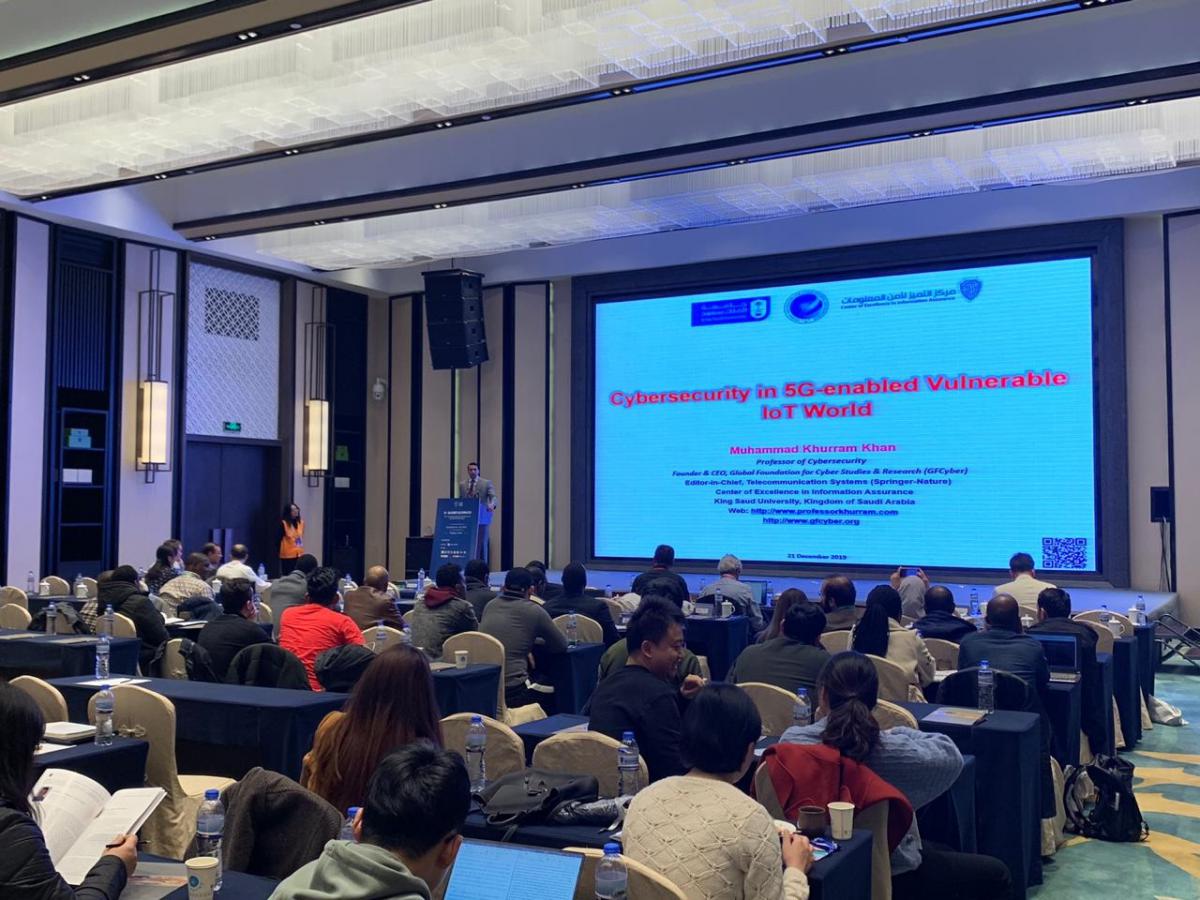
Prof. Muhammad Khurram Khan, a distinguish Professor of Cybersecurity, from the Center of Excellence in Information Assurance (CoEIA) at King Saud University was invited to deliver a keynote speech entitled, “Cybersecurity in 5G-enabled Vulnerable IoT World”, at the overwhelming conference.
“The large-scale proliferation of Internet of Things (IoT) is ushering in a new era, which is transforming the way we work, live, communicate and perform businesses. IoT envisages to unite physical and virtual worlds by extending computing and connectivity capabilities to everyday things e.g. cars, refrigerators, and home appliances, etc. In tandem, the dawn of fifth generation networks (5G) with promise of ultra-high speed Internet, massive bandwidth, and super-low latency is the building-block of making this all happen with more IoT friendly ecosystem and its applications in automotive, healthcare, energy, aerospace & defense, industrial, and consumer electronics, etc. The 5G is set to serve as the backbone of the fourth industrial revolution (4IR), which is blurring the lines between physical, digital and biological spheres”, stated by Prof. Muhammad Khurram Khan at the outset of his keynote speech.
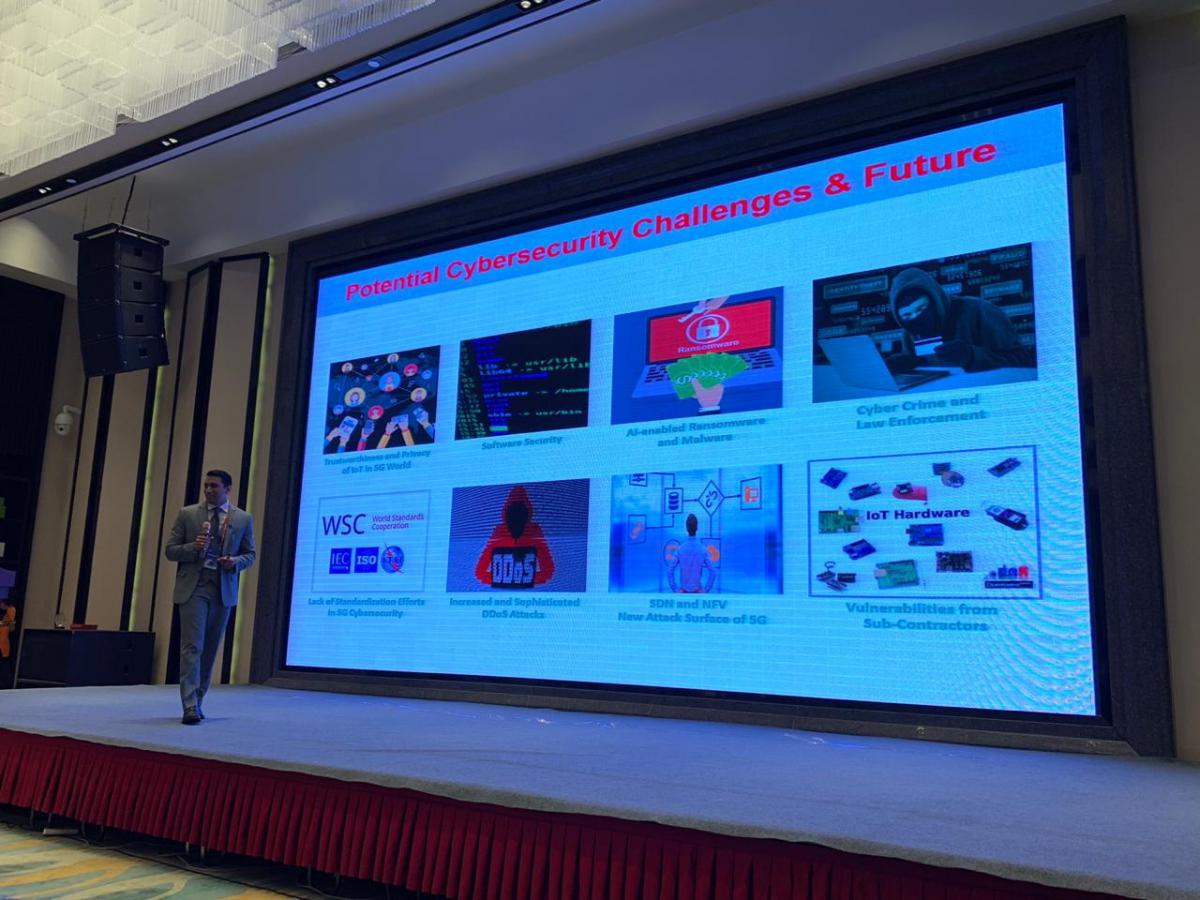
“The unprecedented dependence and hyper-connectivity of billions of IoT devices could lead to the unexpected cybersecurity risks and threats, which may have serious ramifications beyond our imagination. With low-latency and higher bandwidth, 5G uses cloud-based services, network function virtualization, software defined networks, IoT & IIoT, and edge/fog computing, this raises a cybersecurity issue, more users and more devices mean there are more vulnerabilities, cyber-attacks and cyber-crimes, etc.”, Prof. Khurram further elaborated on the challenges of the IoT and 5G.
To overcome challenges of the IoT and 5G cybersecurity issues, Prof. Khurram discussed his research outcomes and contributions conducted at the Center of Excellence in information Assurance at KSU. At the end of his speech, he also discussed some hot and future research challenges, which need paramount attention from the research, academic and professional communities. The local media outlets interviewed Prof. Khurram about the cybersecurity issues around the world and how could governments and individuals address those problems to protect themselves from cyber attacks and crimes.
Several other well-reputed and distinguished experts, including Prof. Çetin Kaya Koç, IEEE Fellow (University of California Santa Barbara, USA), Prof. Yang Xiao, IEEE Fellow (University of Alabama, USA), Prof. Yi Pan (Georgia State University, USA), Prof. V. Potdar (Curtin University, Australia), Prof. H. Khattak (Zayed University, UAE), and Prof. Zhaoqing Pan (NUIST, China), were also invited to deliver a series of keynote speeches on different emerging topics related to the conference.

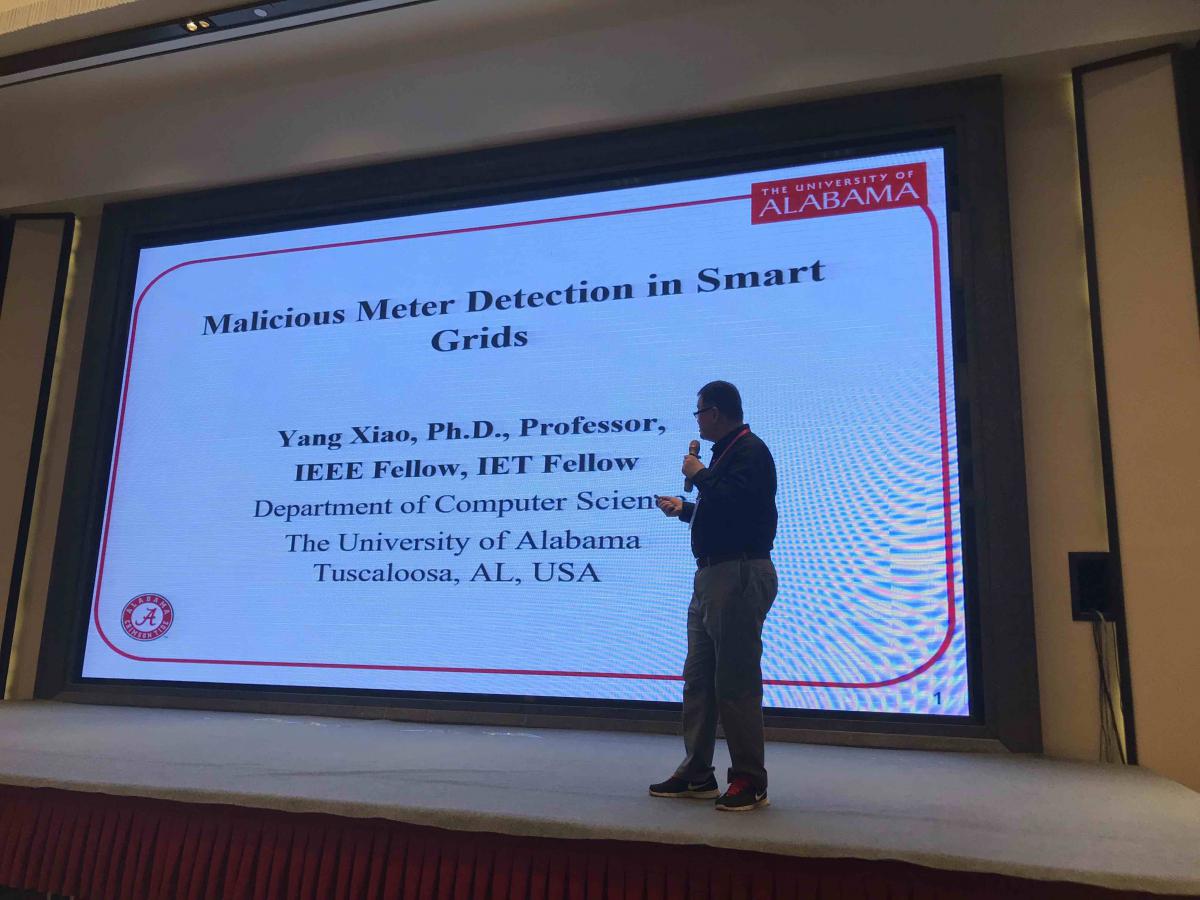
Speakers, attendees and other members of the conference applauded the efforts, dedication and management of Dr. Tian Yuan, the organizing chair of the conference, from Nanjing Institute of Technology (China) for wonderful and well-organized arrangements in making the event a huge success.
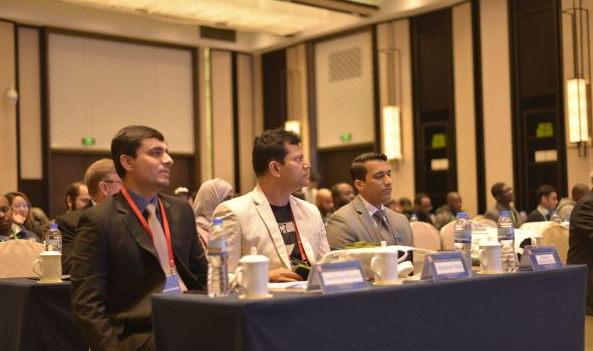

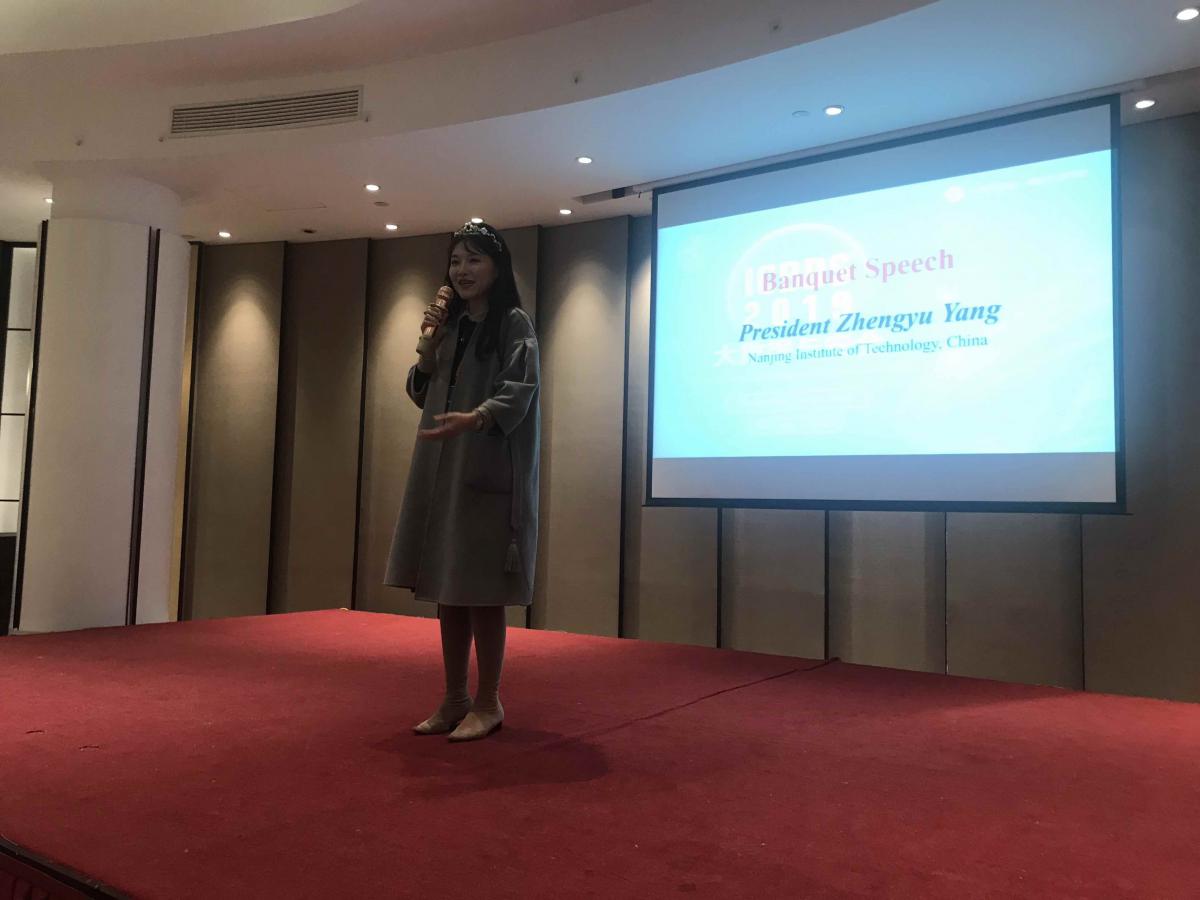
Besides, it is worth mentioning and matter of pride for KSU that the best paper award of the conference was won by Dr. Najla Alnabhan, a female faculty member at the College of Computer & Information Sciences (CCIS) of King Saud University.

